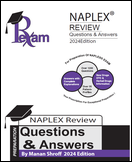
A pharmacy service unit:
I. is a separate entity from the central hospital pharmacy, within the same physical building.
II. provides limited and/or specialized inpatient pharmacy services with a minimum of 100 square feet.
III. shall be covered by the hospital pharmacy license.
a. I only
b. I and II only
c. II and III only
d. All
Answer:
A pharmacy service unit:
I. is a separate entity from the central hospital pharmacy, within the same physical building.
II. provides limited and/or specialized inpatient pharmacy services with a minimum of 100 square feet.
III. shall be covered by the hospital pharmacy license.
a. I only
b. I and II only
c. II and III only
d. All
Answer: All, [New Mexico Administrative Code (NMAC) 16.19.7.10].
A. A pharmacy service unit:
(1). is a separate entity from the central hospital pharmacy, within the same physical building;
(2). provides limited and/or specialized inpatient pharmacy services with a minimum of 100 square feet;
(3). has the necessary space, references and equipment to perform the pharmacy service to be provided.
B. If controlled substances are stored in and/or dispensed from the Pharmacy Service Unit, a locked storage space must be provided and used to store all controlled substances.
C. The Pharmacy Service Unit shall be covered by the hospital pharmacy license.
D. A pharmacist shall be available to the Pharmacy Service Unit during operational hours.
E. A pharmacist shall control access to the Pharmacy Service Unit. Pharmacy technician(s) or intern(s) may be present in the Pharmacy Service Unit during operational hours when the pharmacist is present in the facility.



